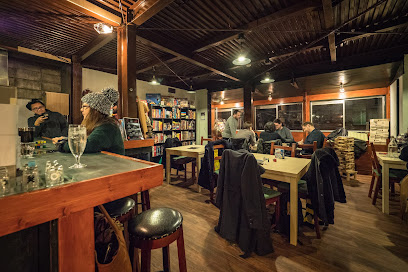
Kongobu-ji Chumon: The Majestic Central Gate of Koyasan
Explore the stunning Kongobu-ji Chumon, a historic gateway to Koyasan's rich Buddhist heritage and serene landscapes.
Kongobu-ji Chumon, known as the Central Gate of Koyasan, is a stunning entrance to the historically rich Kongobu-ji Temple. This iconic structure not only serves as a gateway to spiritual enlightenment but also boasts intricate architectural details and serene surroundings, making it a must-visit for tourists seeking cultural immersion in Japan.
A brief summary to Kongobu-ji Chumon (Central Gate)
- 132 Koyasan, Koya, Koyasan, Ito District, Wakayama, 648-0211, JP
- +81736-56-2011
- Visit website
Local tips
- Visit early in the morning to avoid crowds and experience the serene atmosphere.
- Take your time to admire the intricate craftsmanship of the gate's wooden carvings.
- Consider joining a guided tour to learn more about the history and significance of Kongobu-ji.
- Respect the spiritual nature of the site and maintain a quiet demeanor while exploring.
- Don’t forget to bring your camera; the picturesque surroundings provide stunning photo opportunities.
Getting There
-
Car
If you are traveling by car, take the Nankai Expressway from Osaka. Follow the route to Koyasan, which is well-signposted. The journey takes about 1.5 to 2 hours depending on traffic. Once you reach Koyasan, you can find parking facilities nearby. The Chumon (Central Gate) is located at 132 Koyasan, Koya, Ito District, Wakayama. From the parking area, it's a short walk to the gate.
-
Train and Cable Car
For those using public transportation, start by taking the Nankai Railway from Namba Station in Osaka. Board the Nankai Koya Line bound for Gokurakubashi Station. The ride takes approximately 1 hour and 15 minutes. From Gokurakubashi Station, transfer to the Koyasan Cable Car, which will take you up the mountain to Koyasan Station. The cable car ride is about 5 minutes. Once you arrive at Koyasan Station, you can take a local bus or walk to the Chumon (Central Gate). The gate is about a 10-15 minute walk from the bus stop.
-
Bus
After arriving at Koyasan Station via the cable car, you can also opt to take a local bus. There are buses that run regularly to various attractions in Koyasan, including the Chumon (Central Gate). Make sure to check the bus schedule upon arrival, as the frequency may vary. The bus fare is approximately 300 yen. Disembark at the stop nearest to the gate, and it will be just a short walk from there.
-
Walking
If you prefer to walk, the route from Koyasan Station to the Chumon (Central Gate) is scenic and gives you a chance to enjoy the beautiful surroundings. From the station, head towards the main street, and follow the signs indicating the direction to Kongobu-ji. The walk should take about 20-25 minutes.
Discover more about Kongobu-ji Chumon (Central Gate)
Iconic landmarks you can’t miss
Nyonin-do Hall
0.8 km
Discover the spiritual essence of Koyasan at Nyonin-do Hall, a tranquil Buddhist temple welcoming visitors to explore its serene beauty and rich traditions.
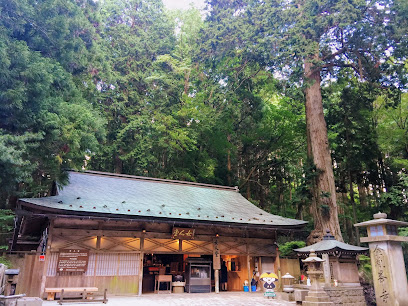
Shukyohojinyakushiji
26.9 km
Experience serenity and cultural richness at Shukyohojinyakushiji Temple in Yoshino District, Nara, a must-visit for every traveler seeking spiritual connection.
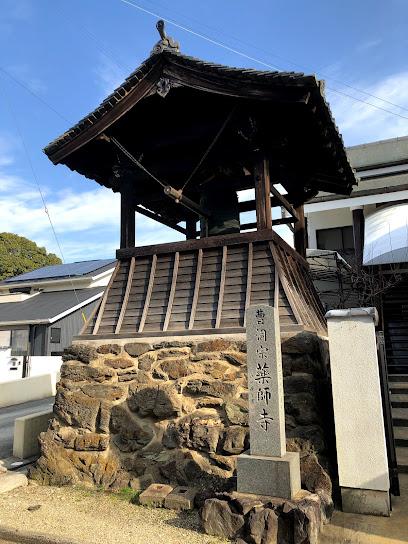
Mitaraikyoutsuri Bridge
27.3 km
Explore the breathtaking views and serene beauty of the Mitaraikyoutsuri Bridge in Kitozumi, a hidden gem of Nara, Japan.
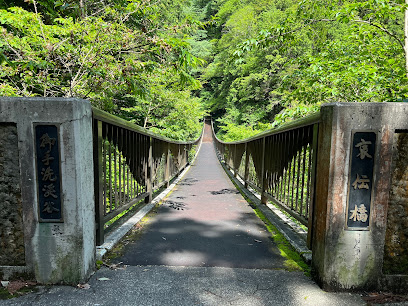
Menfudo Shonyudo
27.9 km
Experience the serene beauty and spiritual significance of Menfudo Shonyudo, a hidden gem nestled in the picturesque Tenkawa region of Nara.
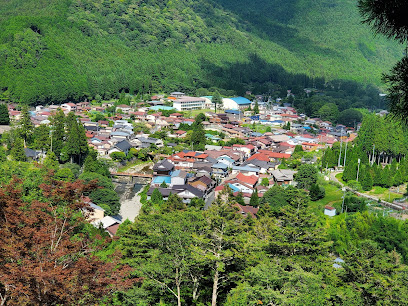
Goyomatsu Limestone Cave Monorail
29.5 km
Discover the breathtaking beauty of the Goyomatsu Limestone Cave Monorail, an unforgettable journey through Tenkawa's stunning limestone landscapes.
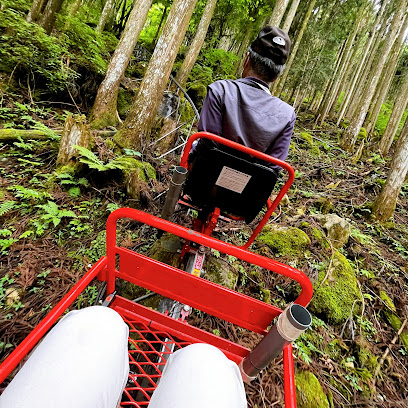
Yata Pass (Kumano Kodo Pilgrimage Trail Kiritoshi Road)
30.3 km
Discover the serene beauty and rich history of Yata Pass, an essential stop on the Kumano Kodo Pilgrimage Trail in Wakayama, Japan.
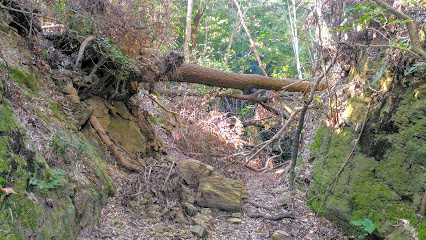
Yoshino Kumano National Park
33.4 km
Explore the breathtaking beauty and rich heritage of Yoshino Kumano National Park, a serene escape in Japan's lush landscapes and ancient trails.
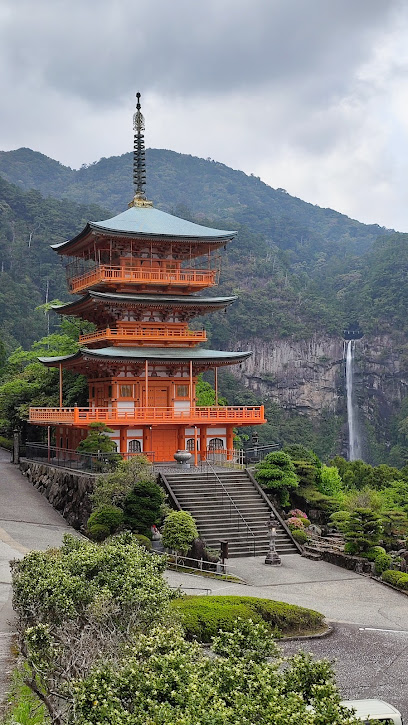
Izumiinoue Shrine
33.6 km
Discover the serene beauty and cultural significance of Izumiinoue Shrine, a hidden gem in Osaka's spiritual landscape.
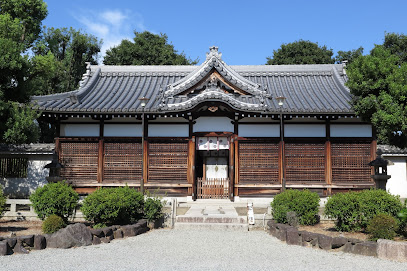
Izumi Tourist Center Omotenashi-Dokoro
33.7 km
Explore Izumi like a local at the Tourist Center Omotenashi-Dokoro, your go-to hub for travel tips, cultural insights, and unique experiences in Osaka.
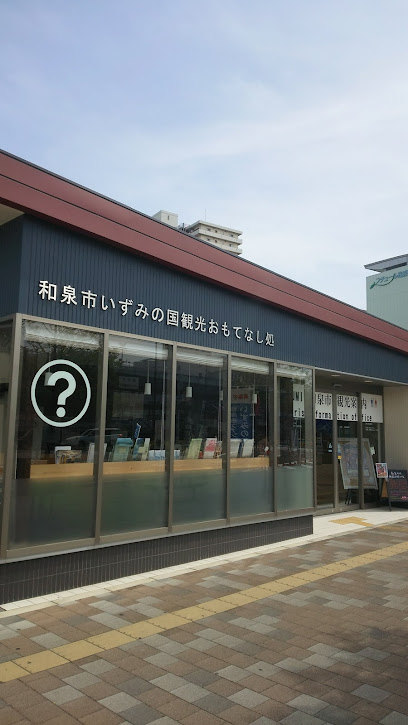
Takamatsuzuka Tumulus
34.7 km
Explore the ancient artistry and history at Takamatsuzuka Tumulus, a serene burial site in Asuka, Japan, rich in cultural significance.
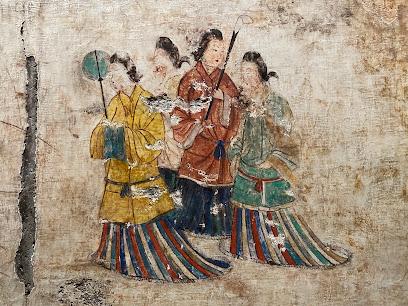
Ikegami-Sone Archaeological Park
35.1 km
Explore the ancient heritage of Japan at Ikegami-Sone Archaeological Park, a serene escape filled with historical treasures and natural beauty.
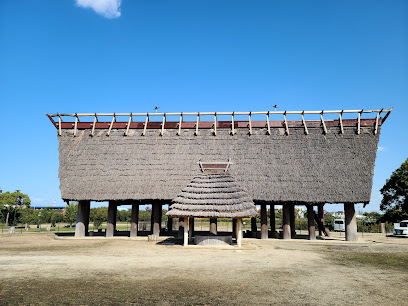
Kotonoura Onzan-Soh-En Garden
35.9 km
Experience the serene beauty of Kotonoura Onzan-Soh-En Garden in Kainan, Wakayama – a tranquil paradise for nature lovers and cultural enthusiasts alike.
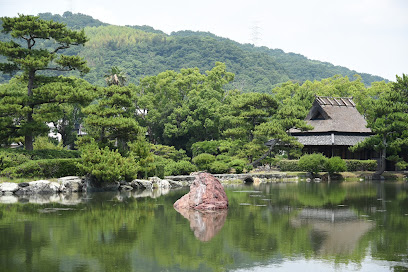
Romon
36.0 km
Explore Romon, a serene Buddhist temple in Wakayama, where tranquility, rich culture, and stunning architecture blend harmoniously for an unforgettable experience.

Ishibutai Tumulus
36.2 km
Explore the Ishibutai Tumulus, a historical landmark in Asuka, Japan, revealing ancient burial traditions and stunning archaeological wonders.
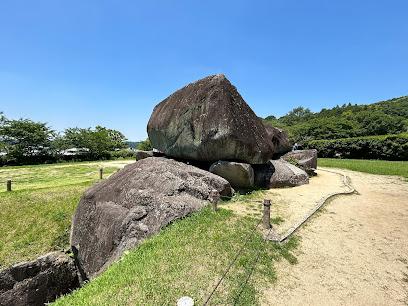
Mausoleum of Emperor Jimmu
37.0 km
Explore the timeless beauty and historical significance of the Mausoleum of Emperor Jimmu in Kashihara, Nara, a must-visit for cultural enthusiasts.
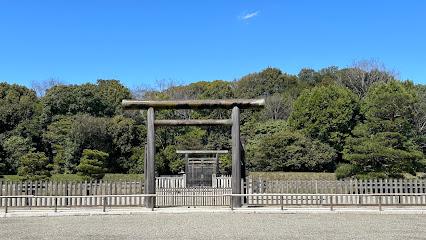
Unmissable attractions to see
Kongobu-ji Danjo Garan (Elevated Precinct)
0.1 km
Discover the serene beauty and spiritual depth of Kongobu-ji Danjo Garan, a remarkable Buddhist temple complex in Koyasan, Japan.
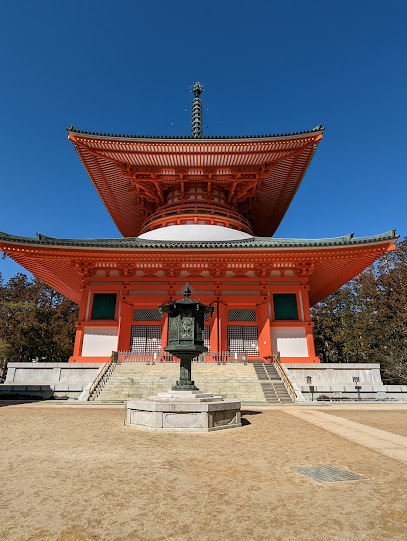
Kongobu-ji Kompon Daito (Grand Central Pagoda)
0.1 km
Experience the serene beauty and spiritual heritage of Kongobu-ji Kompon Daito, the Grand Central Pagoda in Koyasan, a must-visit for travelers seeking tranquility.
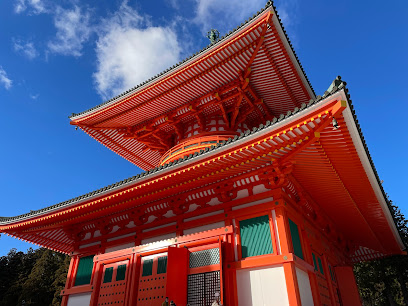
Koyasan Reihokan Museum
0.2 km
Immerse yourself in the artistic legacy of Japan at Koyasan Reihokan Museum, where history and spirituality intertwine.
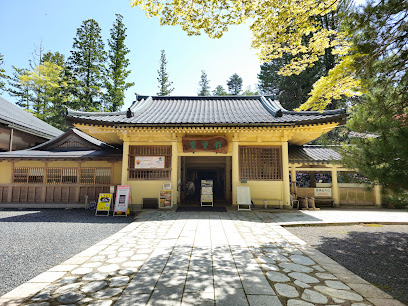
Koyasan Saizen-in Temple
0.2 km
Explore the tranquility of Koyasan Saizen-in Temple, a serene Buddhist temple nestled in the sacred mountains, rich in history and spiritual heritage.
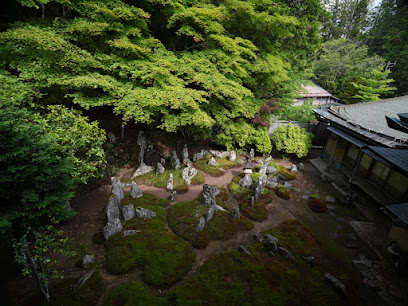
Koyasan Daishikyokai
0.2 km
Discover the spiritual heart of Japan at Koyasan Daishikyokai, a historic Buddhist temple surrounded by breathtaking nature and rich traditions.
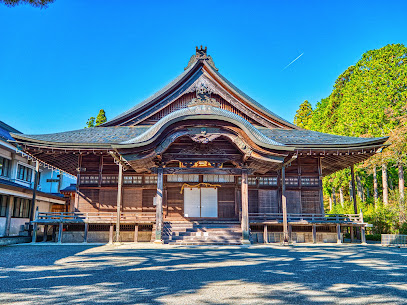
Souji-in Temple
0.2 km
Discover the serene beauty of Souji-in Temple, a hidden gem in Koyasan, where spirituality meets stunning natural landscapes.
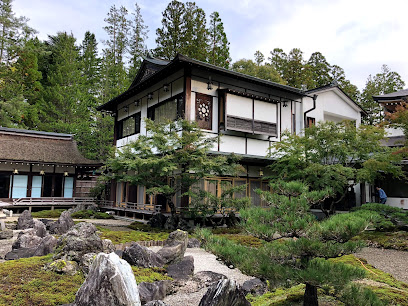
Kongobu-ji
0.4 km
Discover the tranquility and spiritual heritage of Kongobu-ji, the head temple of Koyasan Shingon sect, nestled in Japan's sacred mountains.
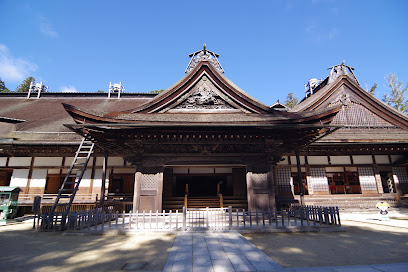
Ichijo-in Temple (Pilgrim's Lodging)
0.6 km
Discover tranquility and spiritual heritage at Ichijo-in Temple, a serene Buddhist retreat nestled in the heart of Koyasan's breathtaking landscapes.
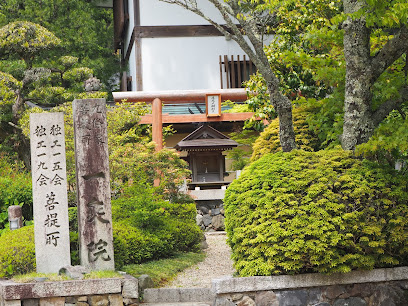
Fukuchi-in Temple (Pilgrim's Lodging)
0.6 km
Experience the serene beauty of Fukuchi-in Temple, a unique Japanese inn and Buddhist temple nestled in the tranquil hills of Koyasan.

Tokugawa Clan Mausoleum
0.6 km
Explore the serene Tokugawa Clan Mausoleum in Koyasan, a historical Buddhist temple steeped in the legacy of Japan's powerful Tokugawa clan.
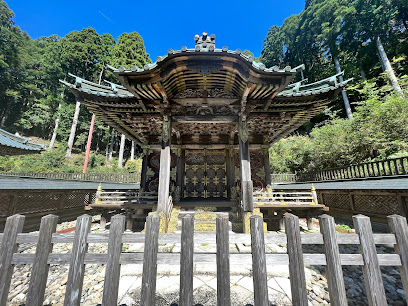
Daimon Gate
0.6 km
Discover the spiritual wonders of Koyasan at Daimon Gate, a breathtaking entrance that symbolizes Japan's rich Buddhist heritage.
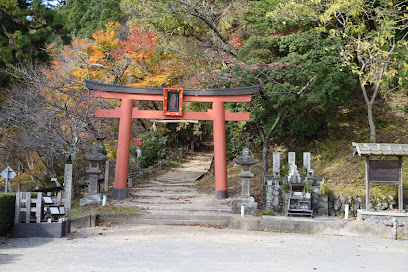
Kumano Kodo Kohechi Pilgrimage Route
0.7 km
Embark on a spiritual and scenic journey through Japan's Kumano Kodo Kohechi Pilgrimage Route, where ancient paths meet stunning landscapes.
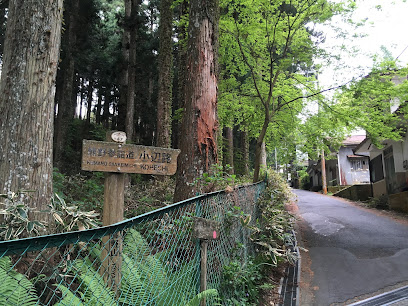
Eko-in Temple (Pilgrim's Lodging)
1.3 km
Discover tranquility and spiritual connection at Eko-in Temple in Koyasan, a serene Buddhist retreat surrounded by nature's beauty.
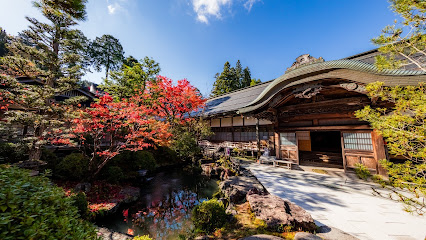
Kumagai-ji Temple (Pilgrim's Lodging)
1.4 km
Immerse yourself in the tranquility of Kumagai-ji Temple, a historic Buddhist sanctuary in Koyasan, where peace and culture intertwine beautifully.
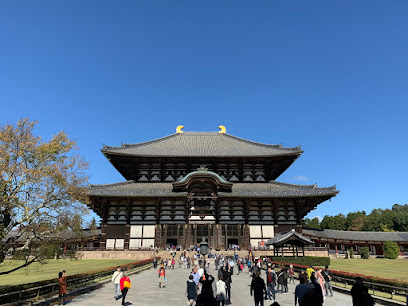
Okunoin Cemetery
2.4 km
Explore the tranquil beauty of Okunoin Cemetery, Japan's largest cemetery, where history and spirituality intertwine in a serene mountain setting.
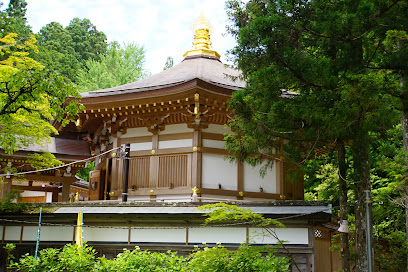
Essential places to dine
New Ashibe
32.4 km
Experience authentic Japanese cuisine at New Ashibe in Izumi's charming Ashibecho district; a must-visit for food lovers seeking local flavors.
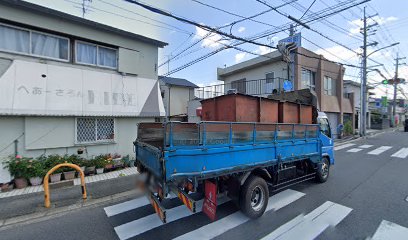
Olutta
32.4 km
Discover Olutta in Izumi: A delightful izakaya offering craft beers and authentic Japanese cuisine in a cozy atmosphere.
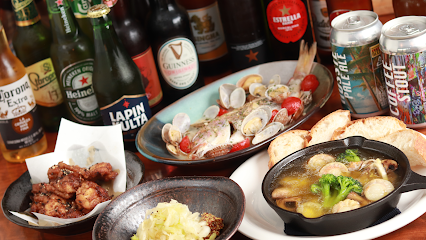
Hochoippon
32.6 km
Discover the authentic taste of Japan at Hochoippon - Izumi's charming izakaya serving traditional dishes in a cozy atmosphere.
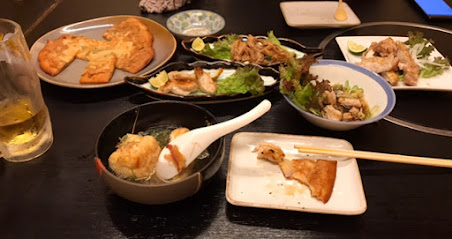
Musashinomori Coffee Izumi Fuchu
32.8 km
Experience cozy dining at Musashinomori Coffee Izumi Fuchu - where delicious breakfasts meet warm hospitality in Osaka.
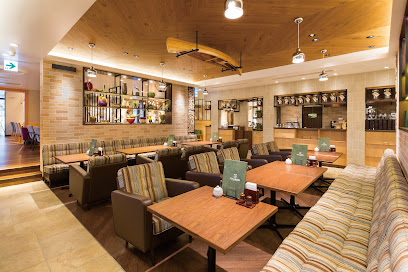
Hanakaidou
33.0 km
Experience authentic Japanese cuisine at Hanakaidou in Izumi - where tradition meets modern culinary artistry.
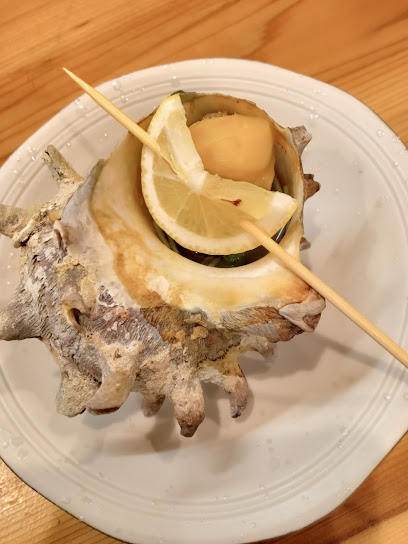
Okamino
33.4 km
Experience authentic Japanese cuisine at Okamino in Izumi, Osaka – where tradition meets flavor in every dish.
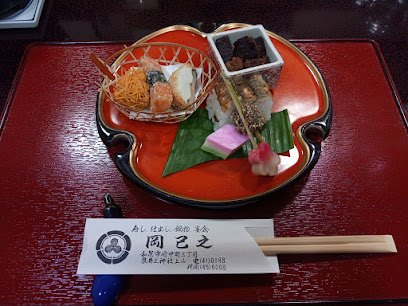
藁sumi
33.5 km
Savor authentic Japanese cuisine at 藁sumi, a delightful izakaya in Izumi, Osaka known for its inviting atmosphere and exquisite dishes.
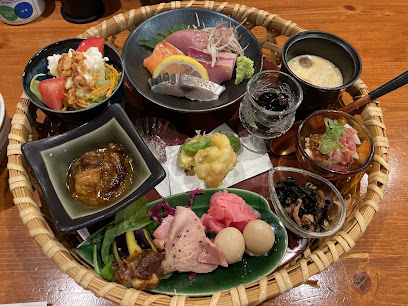
Sueyoshi
33.7 km
Discover the flavors of Japan at Sueyoshi in Izumi - where fresh seafood meets authentic izakaya charm.
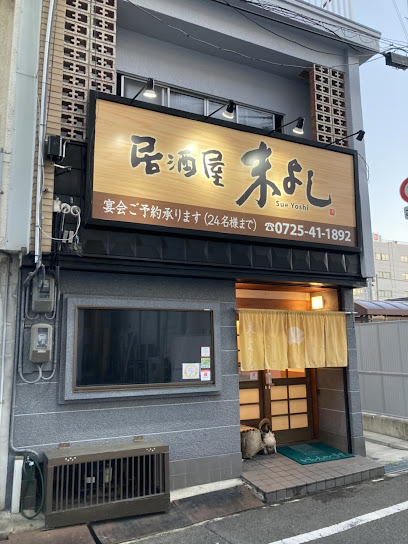
Kitchen103(キッチンイチマルサン)
33.7 km
Discover authentic izakaya dining at Kitchen103 in Izumi, Osaka - where every dish is a celebration of Japanese culinary artistry.
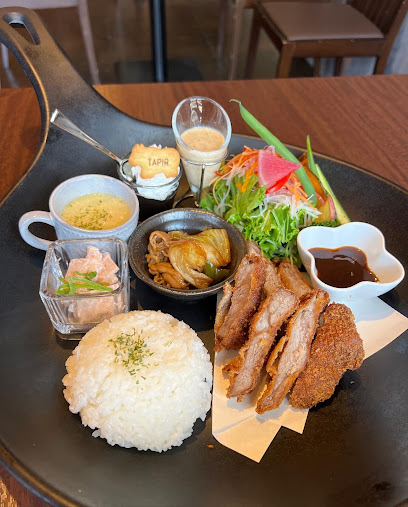
Hakata
33.8 km
Explore Hakata's vibrant dining scene where authentic Japanese flavors come alive amidst a rich cultural backdrop.
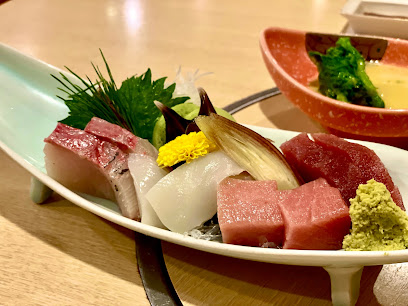
Gohandoki Izumi
33.8 km
Savor authentic Japanese and Chinese noodle dishes at Gohandoki Izumi, where culinary traditions blend beautifully in Osaka.
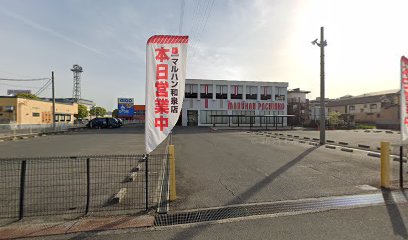
Nakau Izumi Fuchu
33.9 km
Explore authentic Japanese flavors at Nakau Izumi Fuchu in Osaka – home to delicious gyudon and comforting noodle dishes.
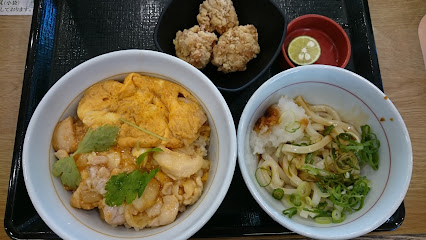
KALINKA MALINKA RESTAURANT
33.9 km
Experience authentic Eastern European cuisine in Izumi, Osaka at Kalinka Malinka Restaurant - where every dish tells a story.

Katsura
33.9 km
Discover the art of teppanyaki at Katsura in Izumi, Osaka—where culinary skill meets fresh ingredients for an unforgettable dining adventure.
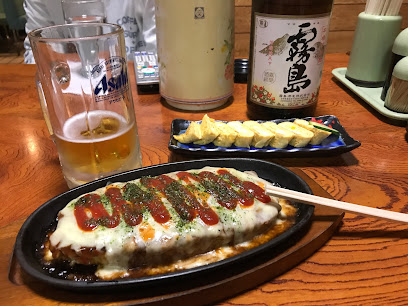
Kushinoren
34.3 km
Experience authentic Japanese izakaya dining at Kushinoren in Osaka - where tradition meets flavor in a cozy atmosphere.
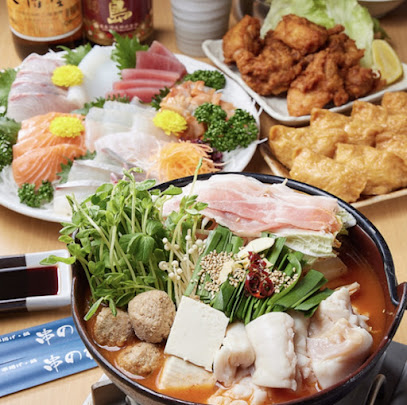
Markets, malls and hidden boutiques
Takano
0.5 km
Explore Takano Shopping Mall in Koya for a vibrant shopping experience infused with local culture and delicious cuisine.
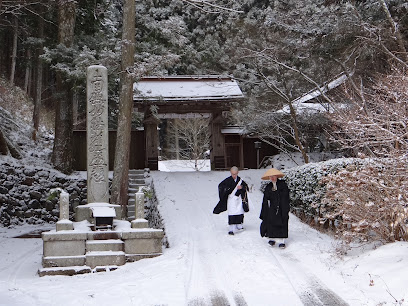
DAISO
28.0 km
Explore DAISO in Kawachinagano, Osaka – a treasure trove of affordable products and unique Japanese finds for every traveler.
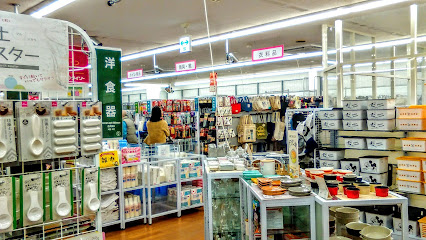
Washington Hotel Kansai Airport
33.8 km
Discover unparalleled comfort and convenience at Washington Hotel Kansai Airport, your gateway to Osaka's attractions and seamless travel.
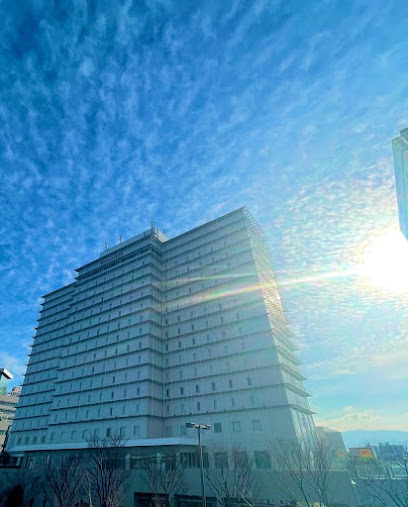
Treasure Factory LAPARK-Kishiwada
34.3 km
Explore unique finds at Treasure Factory LAPARK-Kishiwada, a second-hand store filled with vintage treasures and sustainable shopping options.
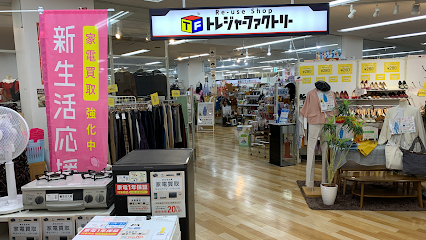
Coffee Sanpo
36.3 km
Discover the tranquility of Coffee Sanpo in Asuka, where exceptional brews meet breathtaking countryside views.
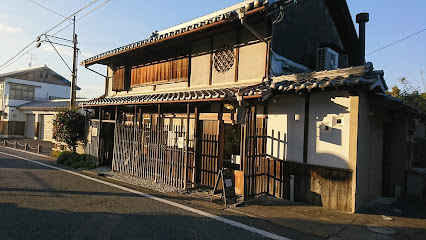
Aeon Mall Kashihara
36.7 km
Discover unparalleled shopping and dining at Aeon Mall Kashihara in Nara, Japan, where tradition meets modern retail and entertainment.
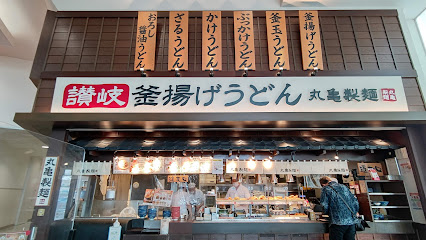
Sky ShopTown
38.9 km
Discover the essence of Osaka at Sky ShopTown, your premier destination for unique souvenirs and local delicacies at Kansai International Airport.
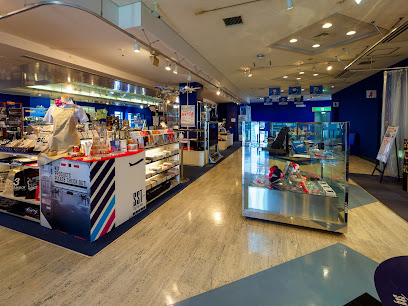
TASTE OF KANSAI
39.4 km
Explore a delightful array of local flavors and unique souvenirs at TASTE OF KANSAI, your ultimate gift shop in Kansai International Airport.
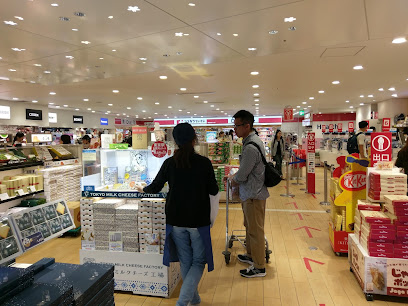
One Village, One Product Market
39.4 km
Explore the charm of local craftsmanship at One Village, One Product Market in Izumisano, your destination for unique gifts and artisanal delights.
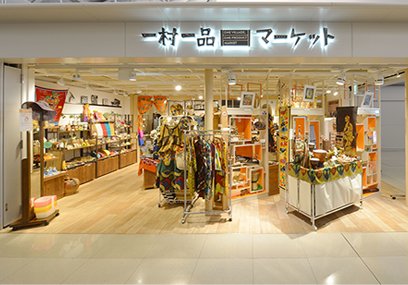
KIX DUTY FREE Main Shop North
39.4 km
Explore a diverse selection of duty-free products at KIX Duty Free Main Shop North, your ultimate shopping stop at Kansai International Airport.

KIX DUTY FREE North Wing Shop
39.6 km
Discover luxury and local treasures at the KIX Duty Free North Wing Shop in Kansai International Airport.
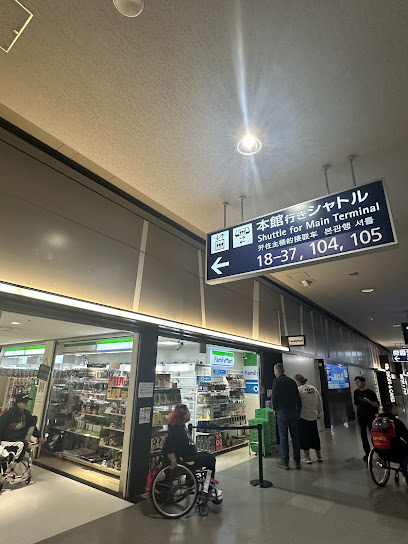
AEROPLAZA
39.7 km
Discover AEROPLAZA: A shopping haven at Kansai International Airport blending retail therapy with rich Japanese culture.
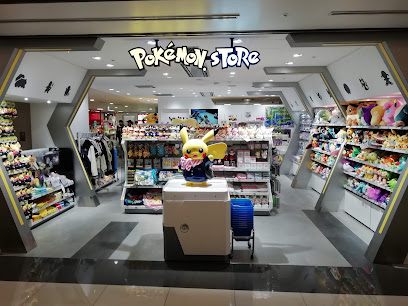
Daily SKY
40.6 km
Explore Daily SKY's convenience store in Kansai International Airport for all your travel essentials and local snacks.
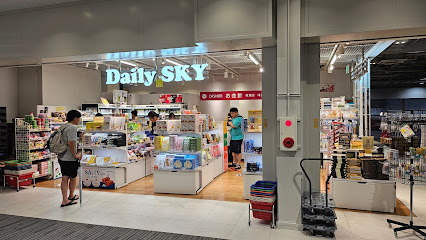
Road Station Oku-kumanokodo Hongu
42.2 km
Discover local flavors and beautiful scenery at Road Station Oku-kumanokodo Hongu, the ideal rest stop in Wakayama Prefecture.
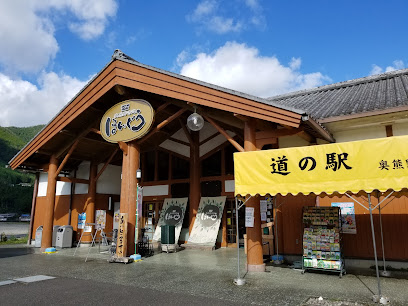
Fushiogami Teahouse
42.4 km
Experience tranquility at Fushiogami Teahouse, a charming cafe along the Kumano Kodo, offering authentic Japanese tea and serene surroundings.
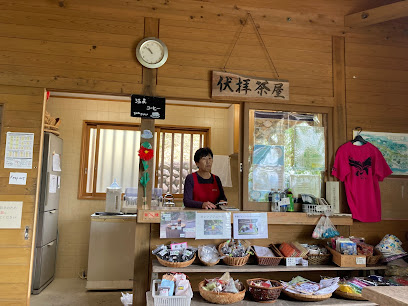
Essential bars & hidden hideouts
THE SAILING BAR
40.5 km
Experience Sakurai's vibrant nightlife at The Sailing Bar, where exquisite cuisine meets a charming nautical atmosphere.
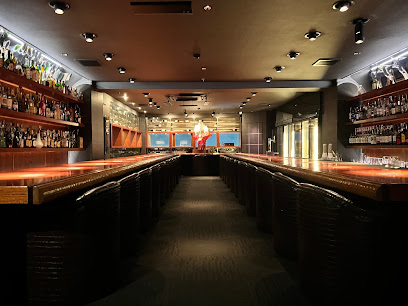
Hosshinmon-oji
41.1 km
Explore the serene beauty and spiritual heritage of Hosshinmon-oji Shrine, a must-visit Shinto site on the Kumano Kodo pilgrimage route.
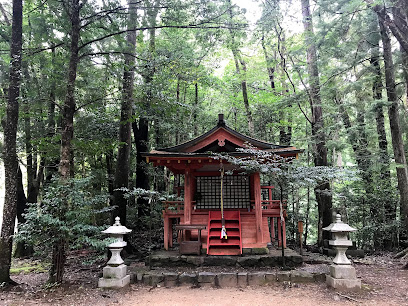
宮ずし
45.4 km
Experience the authentic flavors of sushi at 宮ずし in Tanabe, Wakayama - a must-visit for culinary enthusiasts and travelers alike.
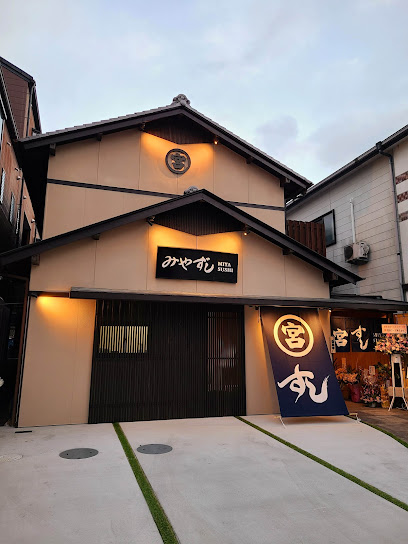
Minshuku Kuraya
45.8 km
Discover the charm of Minshuku Kuraya, where traditional Japanese hospitality meets serene nature in Yunomine, Wakayama.

Guest House Okagesan
46.6 km
Experience authentic Japanese culture at Guest House Okagesan, a budget-friendly inn in the serene landscapes of Tanabe, Wakayama.
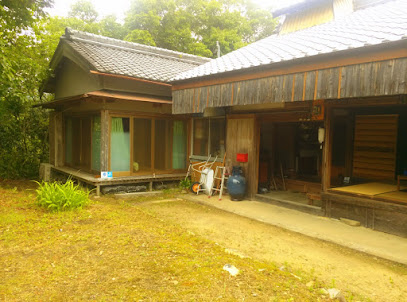
Takahara Kumano Shrine
46.7 km
Discover the spiritual serenity and historical significance of Takahara Kumano Shrine, a hidden gem in Wakayama, Japan.
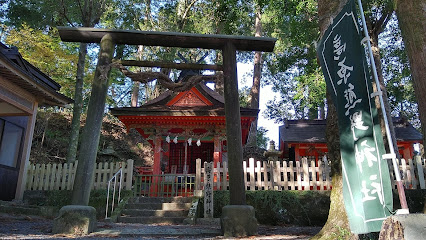
Three Monkeys Cafe Tennoji
48.8 km
Experience the best of Japanese barbecue at Three Monkeys Cafe Tennoji, a lively spot for delicious grilled dishes and refreshing drinks.
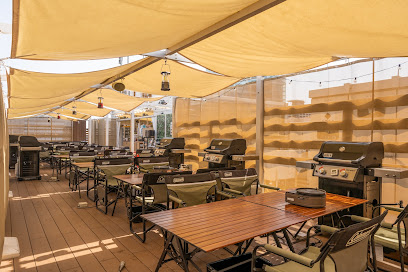
ティンズホール
48.8 km
Experience the lively atmosphere and local charm at Tins Hall, a must-visit bar in Osaka's vibrant Tennoji Ward.
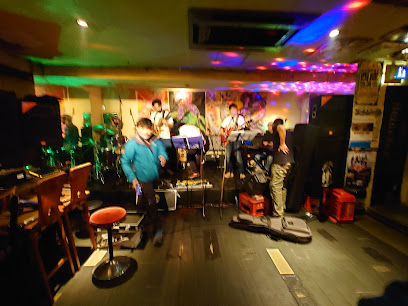
Bar Nocosarejima
49.4 km
Experience the art of mixology at Bar Nocosarejima, a premier cocktail bar in the vibrant Naniwa Ward of Osaka, where unique flavors meet a cozy atmosphere.
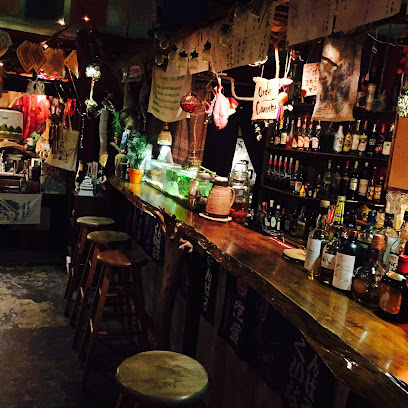
CelticBarGALWAY
49.5 km
Discover the vibrant Celtic Bar Galway in Osaka, blending Irish charm and Japanese hospitality with delightful cocktails and live music.
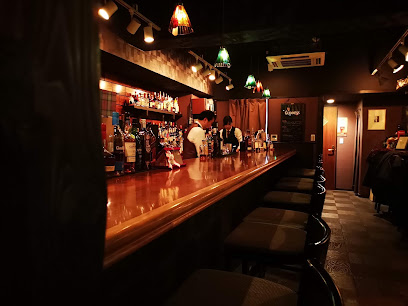
Live Bar OTO
49.8 km
Discover the vibrant nightlife of Osaka at Live Bar OTO, where exceptional drinks and lively atmosphere await every visitor.
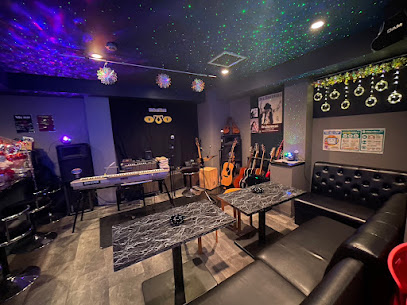
LIVEBar Refuge
50.2 km
Discover the vibrant nightlife of Osaka at LIVEBar Refuge, where local culture meets modern vibes in a lively bar setting.
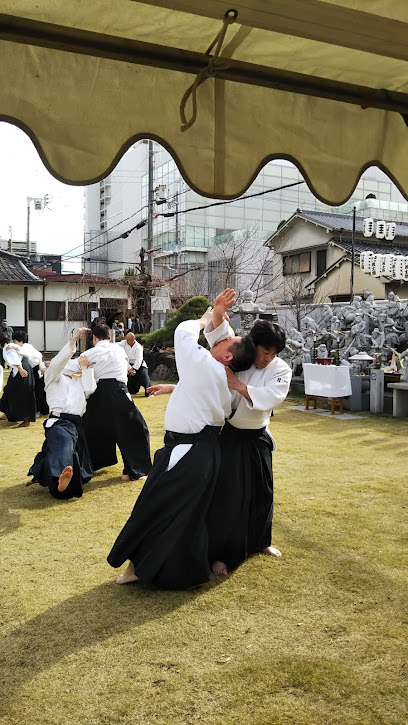
Bar Haze
50.3 km
Discover the lively atmosphere and eclectic drink offerings at Bar Haze, one of Osaka's top bars for nightlife and socializing.
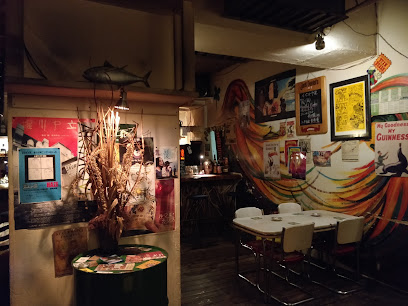
Bar
50.7 km
Experience the quintessential Japanese nightlife at Uehonmachi Bar, where tradition meets modern charm in the heart of Osaka.
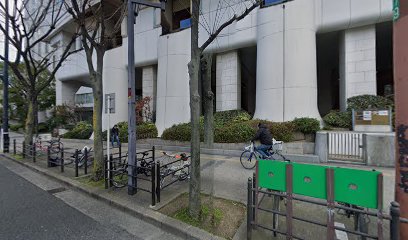
The Hearth Board Game Bar and Café
50.7 km
Discover the ultimate board game experience at The Hearth Board Game Bar and Café in Osaka, where great games and delicious food come together.
